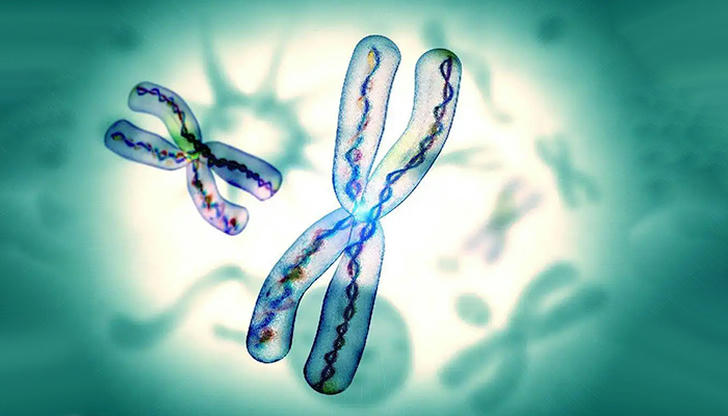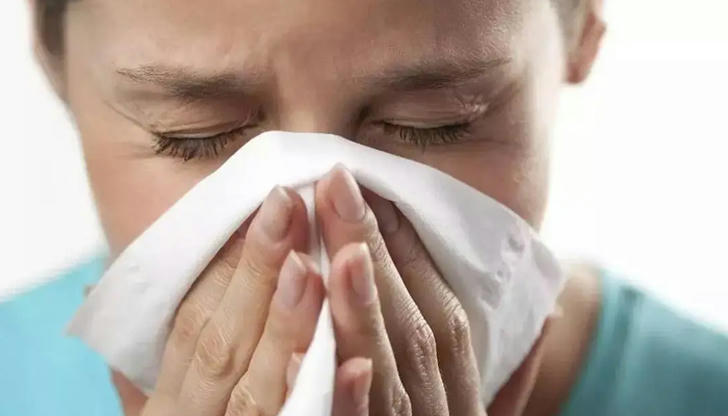12 Factors That Cause Asthma
Advertisement

Spring is the most beautiful season to go out, but for people with allergies, this stage has become the most difficult time, like a nightmare. Because pollen, poplar catkins, at this time can easily induce allergic asthma attacks, patients have to reduce going out or try to be fully armed. However, even if patients stay at home, indoor dust mites and molds multiply in the spring. It also increases the risk of asthma attacks, and these allergens are ubiquitous.
Asthma is characterized by recurrent attacks, which can lead to aggravation of airway inflammation and eventually leads to irreversible narrowing of the airways, resulting in permanent damage to lung function. Therefore, identifying and avoiding asthma triggers can help us better manage asthma and reduce asthma attacks.
1. Genetic

Asthma is a polygenic genetic disease, usually caused by the combined action of pairs of disease-causing genes located on different chromosomes. The survey found that the more the number of people with asthma in the family, the higher the probability of their children suffering from asthma. If both parents have asthma, their children have a 60% chance of developing the disease.
2. Allergic constitution

Asthma patients are mostly allergic constitution, in infants and young children with infant eczema, allergic rhinitis, atopic dermatitis and so on. About 80% of asthma patients have allergic rhinitis. Among allergic rhinitis patients, 30%-40% have asthma, and nearly half of allergic rhinitis can develop into asthma within nine years. People with allergies account for about one-third of the total population, or even more.
3. Obesity

Asthma is also associated with obesity, and obese people have relatively poor lung function and are more likely to develop asthma than the general population. According to a study published online in Pediatrics by academics at Duke University School of Medicine, 23% to 27% of new childhood asthma cases are directly attributable to obesity, meaning that one in four childhood asthma is attributable to obesity. Obesity is a major, preventable risk factor for childhood asthma, with 10% of childhood asthma avoidable without overweight and obesity. Obesity has long been linked to new-onset asthma in adults, with researchers estimating that obesity contributes to approximately 250,000 new-onset adult asthma each year.
4. Exposure to allergens

① Inhalation allergens: dust mites, cockroaches, mold, dust, animal fur, pollen, etc. Among them, dust mites are the most important inhalation allergens that induce asthma. In particular, house dust mites are the most common. ② Food allergens: seafood, milk, meat, eggs and even some vegetables such as bamboo shoots, mushrooms, etc. can become allergens of a specific patient. ③ Contact allergens: such as paint, certain cosmetics, catkins, silk, feathers, moths, cat hair, dog hair and saliva, urine, dander of cats, dogs, cockroaches, mice, etc.
5. Cold air

Studies have shown that people with asthma are more likely to have respiratory symptoms such as coughing and shortness of breath in cold environments, suggesting that inhalation of cold air can cause changes in airway function in asthmatics. This symptom is more pronounced especially when outdoors. Additionally, air temperature-related respiratory symptoms are more likely to occur when asthma is poorly controlled.
6. Food

Food allergies can trigger asthma attacks and can aggravate asthma severity and are one of the main factors in poor asthma control. Common foods that are prone to cause allergies include seafood such as fish, shrimp, crab, milk, eggs, nuts, preservatives in snacks, and nitrites in pickled foods. You should get into the habit of keeping a diary of the foods that trigger your asthma attack and avoid those foods.
7. Smoking

Smoking is not only a trigger for asthma attacks, but also an important cause of uncontrollable asthma. Active and passive asthma patients had more severe symptoms, more exacerbations, and a faster decline in lung function than non-smokers with asthma. Inhaled glucocorticoids are currently the most effective drugs for the treatment of asthma. However, smoking can reduce the efficacy of glucocorticoids in asthma patients, and even cause resistance. Smoking in pregnancy and breastfeeding mothers also significantly increases the risk of developing asthma-like symptoms in babies. Therefore, if you have the habit of smoking, it is recommended to quit smoking as soon as possible, and avoid going to those environments with second-hand smoke and closed environments with poor ventilation. You also don't smoke in your home or car if you are pregnant or have a child with asthma.
8. Cold

Winter is the season of high incidence of colds and flu. After a cold, it can cause increased airway reactivity. Coupled with the continuous stimulation of cold air, it can cause airway spasm, which in turn induces or aggravates asthma symptoms. In addition, respiratory infections such as sinusitis may also induce asthma, especially in children. You want to avoid respiratory infections as much as possible. Before the arrival of the flu season every year, it is recommended that you get the flu vaccine in advance, keep warm, avoid going to crowded places as much as possible, wash your hands and face after returning home, and ventilate the room regularly.
9. Strenuous exercise

Exercise-induced asthma in childhood asthma patients can reach more than 70%. Especially in the cold season, outdoor long-distance running with a large amount of exercise, or competitive sprinting, ice skating, and continuous rope skipping can all induce asthma. This is because the body needs a lot of oxygen during strenuous exercise, and the mouth breathes more. The air inhaled through the mouth is not filtered through the respiratory tract, and is colder and drier. It contains more particles, and a large amount of inhalation can easily induce asthma.
10. Mood changes

Asthma is not a mental illness, but strong emotional changes such as laughter, crying, anger, or fear can narrow the airways and make asthma symptoms worse. In addition, when you feel a certain area of stress, symptoms such as wheezing, coughing and chest tightness may also be aggravated. Therefore, keeping the mind and body happy and releasing stress properly can help to control asthma effectively.
11. Infect

Viral, bacterial or mycoplasma infections, especially viral respiratory infections are the most common. Ascarid, hookworm and other parasitic infections inducing asthma can also be seen in some rural areas.
12. Chemical

Dyes and preservatives such as tartrazine, sapphire blue, nitrite, strong cleaning products (such as bleach), strong perfumes or odors, chemical irritants in the workplace, etc. can trigger asthma. Home improvement pollution is an important cause of asthma. Paints, boards, adhesives, etc. used for decoration contain some harmful chemicals, which can also induce asthma, especially children and adolescents.



